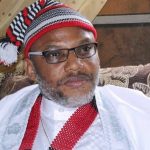The United Nations Development Programme has said Nigeria loses more than N2 billion every year due to poor and unreliable electricity supply.
UNDP’s Resident Representative in Nigeria, Elsie Attafuah, gave this figure on Monday, May 6, at the first National Legislative Conference and Expo on Renewable Energy held in Lagos. The event was organised by the House of Representatives Committee on Renewable Energy, in partnership with UNDP.
Attafuah explained that the country’s weak power supply is affecting many parts of the economy, especially agriculture.
“Agricultural produce such as yam, fruits, and vegetables are being wasted as a result of poor power supply,” she said.
She also added that the lack of electricity is making the unemployment situation worse in the country. According to her, some farmers in northern Nigeria have started seeing better results after UNDP helped provide power-generating tools to their communities.
Speaker of the House of Representatives, Tajudeen Abbas, who also spoke at the event, said Nigeria must now take the shift to renewable energy seriously.
“This conference marks a crucial step for the House of Representatives to engage in the global response to a critical challenge,” Abbas said.
He explained that moving to clean energy was not just important for growing the economy and securing energy, but also for protecting the environment and building a better future.
Abbas pointed to global figures, saying that in 2024, the world added 585 gigawatts of new power capacity, and 92 percent of that came from renewable sources. He also noted that most global energy spending in 2023 — about \$1.7 trillion out of \$2.8 trillion — went into clean energy.
“For Nigeria, a country that relies heavily on fossil fuel exports for its earnings, this transition presents both challenges and opportunities,” Abbas said.
He stated that Nigeria must now look at new ways to earn money and attract clean energy investment, as more countries move away from oil and gas.
The Speaker said that the House of Representatives had already passed new tax reforms that removed VAT on renewable energy and compressed natural gas (CNG). He also said the House is working to strengthen laws that support the Federal Government’s Renewable Energy and Energy Efficiency Policy started in 2015.
“We also understand how urgent it is to provide clean cooking fuels, which is important for public health and the environment,” he added.
Chairman of the House Committee on Renewable Energy, Victor Ogene, said the goal of the conference was to help Nigeria move away from oil and gas and instead grow its industries using renewable energy.
Ogene, who represents Ogbaru Federal Constituency, said renewable energy would create jobs and support long-term development.
Government officials from Abia, Enugu, and Osun states also spoke at the event. They all agreed that Nigeria needs to improve electricity access and build a steady and clean power supply across the country.
Other speakers at the event included the First Deputy Speaker of Ghana’s Parliament, Prof. Benard Afliator; Executive Director of INCLUDE Knowledge Platform, Anika Altaf; Abia State Commissioner for Power and Utilities, Ikechukwu Monday; Enugu State Special Adviser on Energy, Oil and Gas, Chief Kingsley Nnaji; and Osun State Climate Change Consultant, Prof. Chinwe Ogbuagu.











